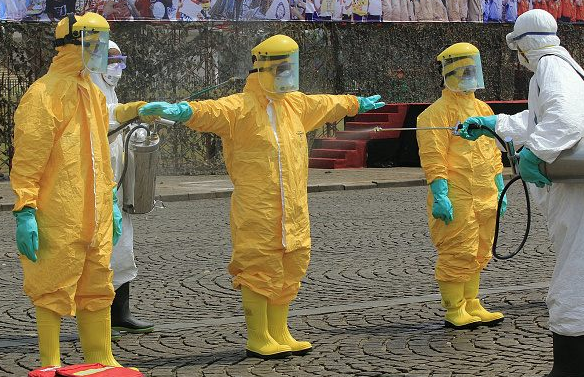
Renewed violence in DR Congo interrupts Ebola care
 Renewed clashes in several regions of the Democratic Republicof Congo have prompted a stop in humanitarian efforts, putting tens of thousands at risk.
Renewed clashes in several regions of the Democratic Republicof Congo have prompted a stop in humanitarian efforts, putting tens of thousands at risk.
The areas affected include those where the deadly Ebola outbreak is being fought.
In Beni, North Kivu, the new Ebola outbreak that has already caused 244 deaths and risks spreading regionally. Repeated incursions by rebel groups have regularly forced medical response teams to suspend their activities.
The current Ebola outbreak in the DR Congo is the country’s tenth in 40 years. It was declared in North Kivu Province on 1 August this year and, given the worsening security situation in and around the city of Beni, the World Health Organization (WHO) elevated its risk level from “high” to “very high” on 28 September.
The DR Congo has been dogged by violence for years, but the situation deteriorated even further in late 2016, following a failure by President Joseph Kabila to step down at the end of his term.
A subsequent political crisis fanned the ethnic and religious clashes, which resulted in hundreds of deaths and displacements of hundreds of thousands.
Ebola, formerly known as Ebola hemorrhagic fever, is a severe, often fatal illness, with a death rate of up to 90 percent caused by Ebola virus. Current evidence suggests that fruit bats may be a host to the virus.
People become infected with Ebola either through contact with infected animals, usually following butchering, cooking or eating, or through contact with the bodily fluids of infected humans.






